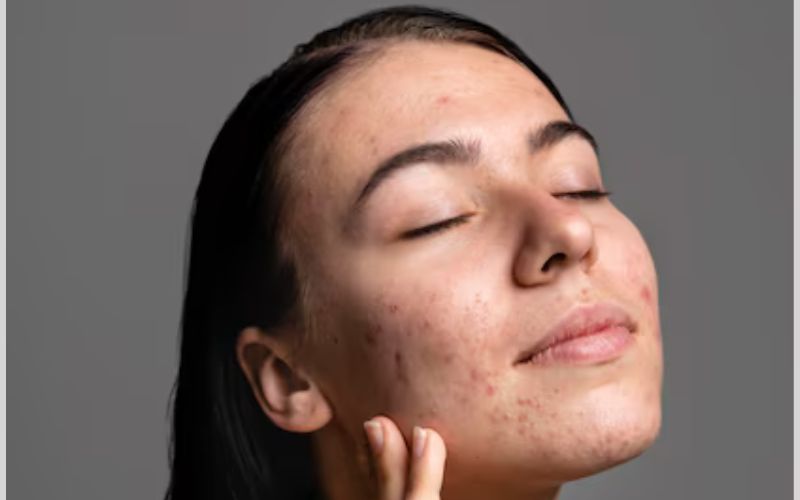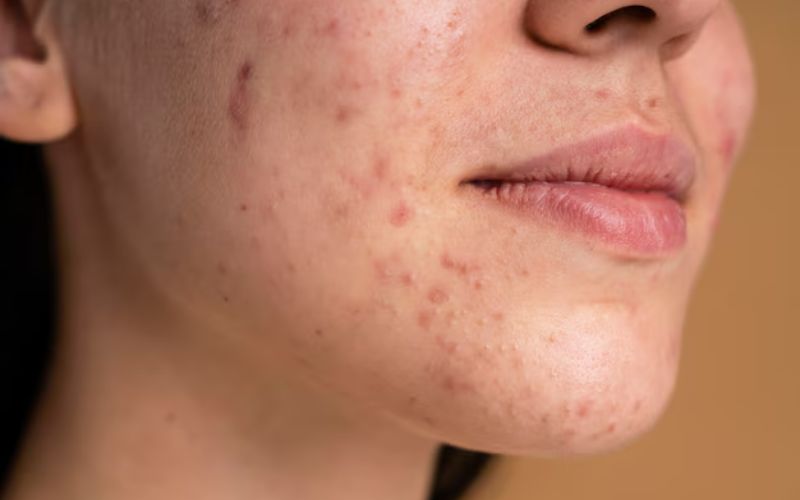Introduction
Pigmentation issues, such as dark spots and uneven skin tone, can be a significant concern for many people. In Ahmedabad, individuals seeking effective and permanent solutions for facial pigmentation often turn to expert dermatologists like Dr. Vishal Brahmbhatt at KJ Aesthetics. This comprehensive guide will delve into the causes, treatments, and expert advice on pigmentation treatment in Ahmedabad, ensuring you have all the necessary information to make an informed decision.
What is Pigmentation?
Pigmentation refers to the coloring of the skin. Disorders can cause changes in skin color, resulting in dark spots, patches, or an uneven skin tone. The primary pigment responsible for skin color is melanin, produced by melanocytes.

Causes of Pigmentation
Sun Exposure: Ultraviolet (UV) rays can increase melanin production, leading to sunspots and dark patches.
Hormonal Changes: Conditions like melasma are often triggered by hormonal changes during pregnancy or the use of birth control pills.
Inflammation: Post-inflammatory hyperpigmentation can occur after an injury or inflammatory condition like acne.
Medications: Certain medications can cause pigmentation changes as a side effect.
Types of Pigmentation Disorder
Hyperpigmentation: An excess production of melanin leading to dark spots.
Melasma: Brown or gray-brown patches, often caused by hormonal changes.
Sunspots: Also known as solar lentigines, these are caused by prolonged sun exposure.
Post-inflammatory Hyperpigmentation: Dark spots that appear after the skin heals from injury or inflammation.
Effective Treatments for Pigmentation
Topical Treatments
Hydroquinone: A skin-lightening agent that decreases the formation of melanin in the skin.
Retinoids: Vitamin A derivatives that promote cell turnover and reduce dark spots.
Vitamin C: An antioxidant that helps in reducing pigmentation by inhibiting melanin production.
Chemical Peels: Chemical peels involve applying a solution to the skin to remove the top layers. This promotes the growth of new, less pigmented skin. Peels vary in strength and can be customized to address specific pigmentation issues.
Laser Therapy: Laser treatments, such as Q-switched Nd
and fractional lasers, target and break down melanin deposits. These treatments can be highly effective for stubborn pigmentation.
Microdermabrasion: This technique involves exfoliating the skin to remove dead cells and promote the growth of new, evenly pigmented skin. It is suitable for treating superficial pigmentation.
Microneedling: Microneedling involves using fine needles to create micro-injuries in the skin, stimulating collagen production and improving skin texture and tone. It can help reduce pigmentation over time.
Professional Advice and Consultation
Dr. Vishal Brahmbhatt emphasizes the importance of a personalized treatment plan. "Each patient's skin is unique, and understanding the underlying cause of pigmentation is crucial for effective treatment," says Dr. Brahmbhatt. A thorough consultation will help determine the best course of action.
Which Treatment is Best for Hyperpigmentation?
Mesotherapy involves injecting a cocktail of vitamins, minerals, and medications directly into the scalp. This treatment nourishes hair follicles, promotes growth, and improves scalp health.
Topical Treatments
Hydroquinone: Often considered the gold standard for hyperpigmentation, hydroquinone reduces the production of melanin in the skin. It is effective for various forms of hyperpigmentation, including melasma and age spots.
Retinoids: Vitamin A derivatives like tretinoin and adapalene promote cell turnover, helping to fade dark spots and improve skin texture.
Vitamin C: An antioxidant that brightens the skin and inhibits melanin production, making it effective for reducing hyperpigmentation.
Niacinamide: This form of vitamin B3 reduces melanin transfer within the skin, helping to lighten dark spots over time.

Which Procedure is Best for Pigmentation?
Hair Transplantation
Glycolic Acid Peels: These peels exfoliate the skin, promoting the growth of new, less pigmented skin cells. They are effective for mild to moderate pigmentation issues.
Salicylic Acid Peels: Especially useful for treating post-inflammatory hyperpigmentation caused by acne.
Laser Therapy:
Q-Switched Nd
Laser: This laser targets melanin deposits in the skin, breaking them down and reducing pigmentation. It is effective for deep and stubborn pigmentation.
Fractional Lasers: These lasers create micro-injuries in the skin, stimulating collagen production and promoting an even skin tone.
Microdermabrasion: This procedure exfoliates the outer layer of the skin, helping to remove superficial pigmentation and promote new skin growth.
Microneedling: By creating micro-injuries in the skin, microneedling stimulates collagen production and helps to reduce pigmentation over time.
Can Pigmentation Be Removed Permanently?
Pigmentation can be significantly reduced and managed, but complete and permanent removal can be challenging. The effectiveness of treatments varies based on the cause and type of pigmentation. For many individuals, a combination of treatments and consistent maintenance, such as regular use of sunscreen and topical treatments, can lead to long-lasting results.
Key Points to Consider
Consistent Sun Protection: Using sunscreen daily is crucial to prevent new pigmentation and maintain treatment results.
Maintenance Treatments: Ongoing use of topical treatments like hydroquinone, retinoids, and vitamin C can help keep pigmentation at bay.
Professional Guidance: Regular consultations with a dermatologist can ensure the most effective treatment plan and adjustments as needed.
While pigmentation can often be managed effectively, it's essential to understand that factors like sun exposure, hormonal changes, and skin injuries can contribute to new pigmentation over time. Therefore, a proactive and continuous approach to skincare is necessary for long-term success.
Preventive Measures for Maintaining Even Skin Tone
Sunscreen: Regular use of broad-spectrum sunscreen with an SPF of 30 or higher is essential.
Protective Clothing: Wearing hats, sunglasses, and long sleeves can provide additional protection from UV rays.
Healthy Skincare Routine
Cleansing: Using a gentle cleanser to remove dirt and makeup.
Moisturizing: Keeping the skin hydrated helps maintain its barrier function.
Exfoliation: Regular exfoliation removes dead skin cells and promotes cell turnover.
Diet and Lifestyle
Healthy Diet: Consuming foods rich in antioxidants, such as fruits and vegetables, can support skin health.
Hydration: Drinking plenty of water helps keep the skin hydrated and glowing.
Frequently Asked Questions (FAQ)
The timeline for seeing results can vary depending on the treatment type and the severity of the pigmentation. Topical treatments may take several weeks to months, while procedures like laser therapy can show results more quickly.
Conclusion
Understanding the difference between a skin doctor and a dermatologist is crucial for making informed decisions about your skin health.
Dr. Vishal Brahmbhatt Dermatologists offer specialized training and expertise that general skin doctors may lack, making them the best choice for comprehensive and effective skin care. For anyone seeking expert dermatological care, consulting the best dermatologist in Ahmedabad ensures you receive the highest quality of care tailored to your specific needs.

